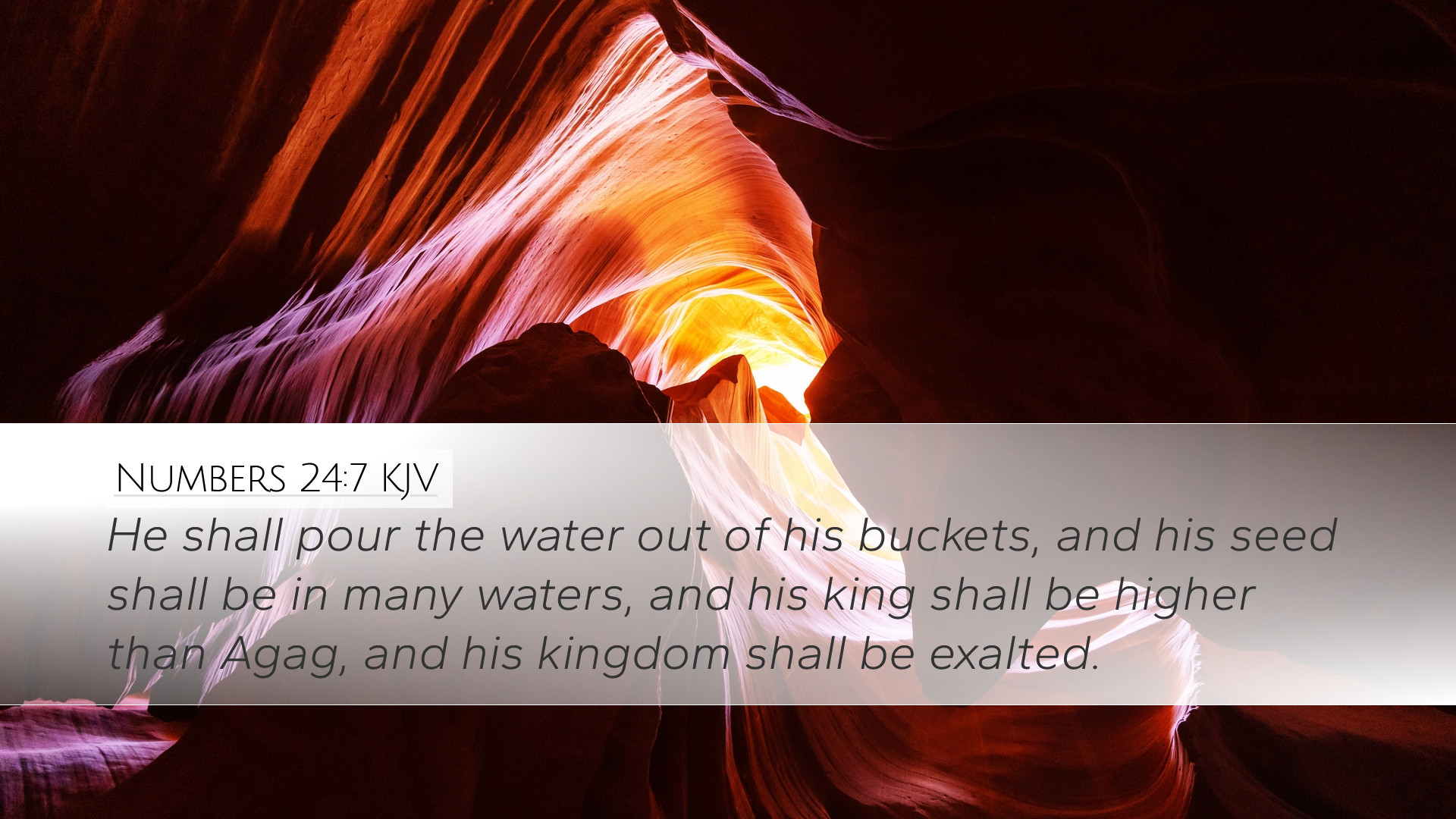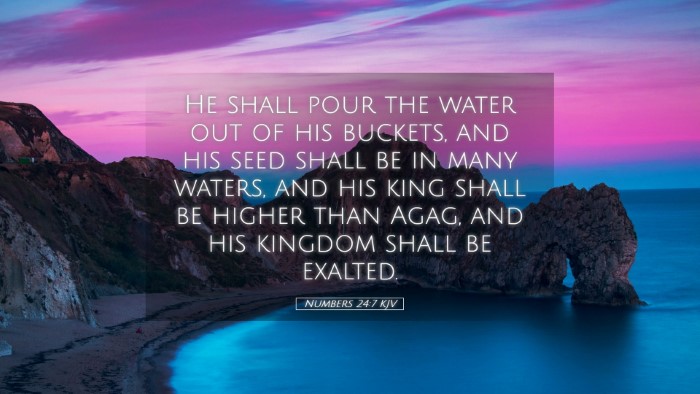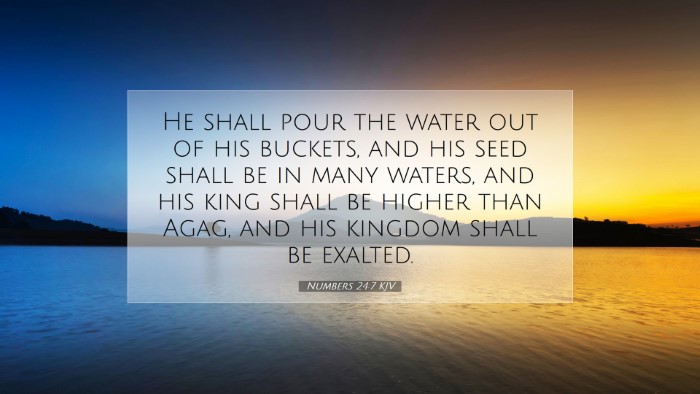Bible Commentary on Numbers 24:7
Verse: "He shall pour the water out of his buckets, and his seed shall be in many waters, and his king shall be higher than Agag, and his kingdom shall be exalted." (Numbers 24:7, KJV)
Introduction
The verse Numbers 24:7 occurs in the context of Balaam's prophetic declarations concerning Israel. Here, we find a rich tapestry of theological, historical, and metaphorical meaning that has garnered the attention of Bible scholars across generations.
Contextual Analysis
This verse forms part of Balaam’s last oracle, where he is inspired to speak not merely ill of Israel, but rather to pronounce blessings upon them. Balaam, called upon by Balak to curse Israel, ultimately ends up affirming their divine favor and destiny.
It is important to note that Numbers 24 precedes the Israelites entering the Promised Land, and thus, Balaam's words serve both as a declaration of God's faithfulness and as a prophetic glimpse into Israel's future.
Exegesis of Key Phrases
-
"He shall pour the water out of his buckets":
This imagery suggests abundance and a rich blessing. Water is often a symbol of life and sustenance in Scripture. The metaphor implies that Israel will be fruitful and prosperous, providing sustenance to others.
-
"His seed shall be in many waters":
This phrase connotes growth and reproductive success. It illustrates not only the numerical growth of Israel but a spiritual vitality that will permeate the surrounding nations. The ‘many waters’ signify a diversity of blessings that will flow from Israel’s faithfulness.
-
"His king shall be higher than Agag":
This reference to Agag indicates a comparison with the Amalekite king, symbolizing Israel’s eventual dominion over their enemies. Agag himself is often associated with pride and evil, making the elevation of Israel’s king a powerful statement of God’s sovereignty and purpose.
-
"His kingdom shall be exalted":
The exaltation of the kingdom of Israel points to its ultimate establishment and rule under divine authority. This speaks to the eschatological future where Christ, as the ultimate king, reigns supreme over all nations.
Theological Implications
The blessings pronounced in this verse encapsulate a significant theological theme of the Old Testament: God’s unwavering covenant with His people. It affirms that despite human attempts to thwart God’s plans, His purposes will prevail.
The imagery of water and seed ties closely with New Testament teachings on the living water offered by Christ and the fruitfulness expected of believers (John 4:10; Galatians 5:22-23). The interplay is profound in outlining the continuity of God’s plan from the Old Testament to the New.
Historical Context
Understanding the historical situation surrounding Israel at this time adds depth to the verse. The Israelites were nearing the end of their 40 years in the wilderness, facing various challenges. Balaam’s prophecy thus served to bolster their spirits, reminding them of God’s continued favor in the face of potential opposition.
Furthermore, this prophecy served as a stark contrast to Balak's intention to use Balaam as a conduit for curse. Instead, this oracle effectively pointed towards Israel's triumph over its enemies and the establishment of a powerful kingdom.
Application for Today
-
Faithfulness in Adversity:
Just as the Israelites were promised blessing in the midst of opposition, modern believers are called to trust in God's provision and sovereignty even when circumstances appear daunting.
-
The Abundant Life:
The imagery of “pouring out water” can inspire believers to live a life that overflows with God’s grace, not just for their benefit, but to nourish others around them.
-
Understanding Divine Authority:
The reference to royalty and kingdoms exhorts believers to recognize Christ's ultimate kingship, submitting to His authority and seeking His guidance in all aspects of life.
Conclusion
Numbers 24:7 encapsulates a vital moment in Israel's history, laden with profound theological significance, prophetic insight, and practical application for today. As believers reflect on these words, one can encourage hope and foster a greater understanding of God’s plan, both in biblical times and in the contemporary world.


